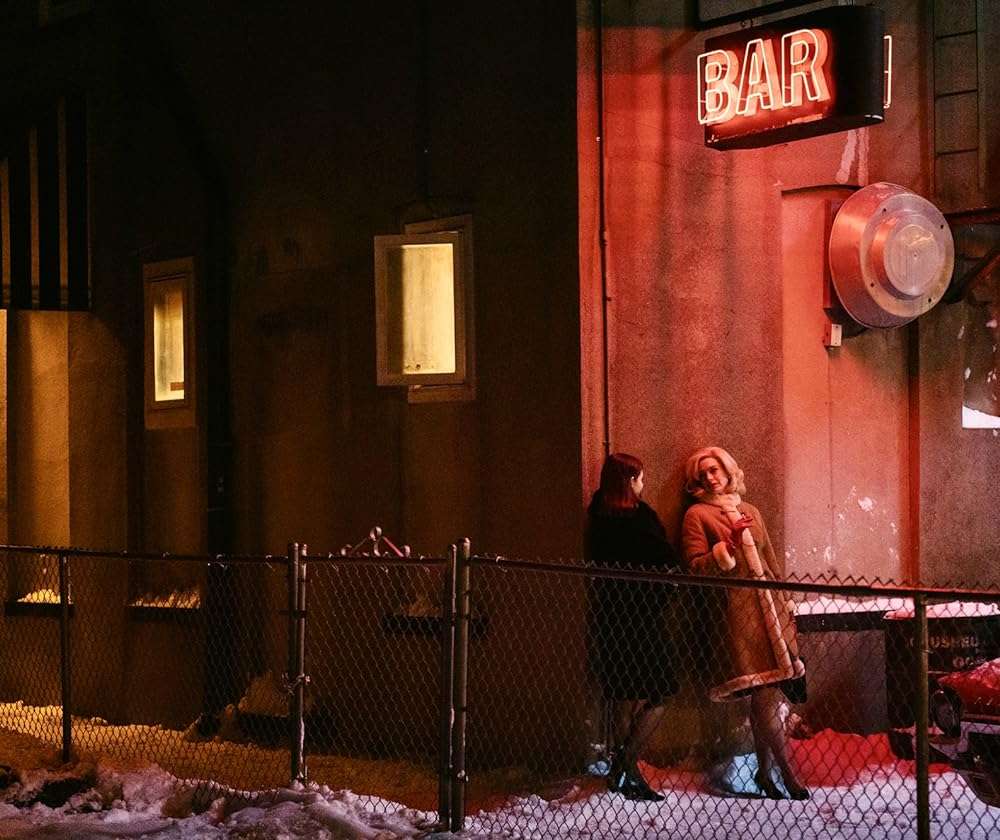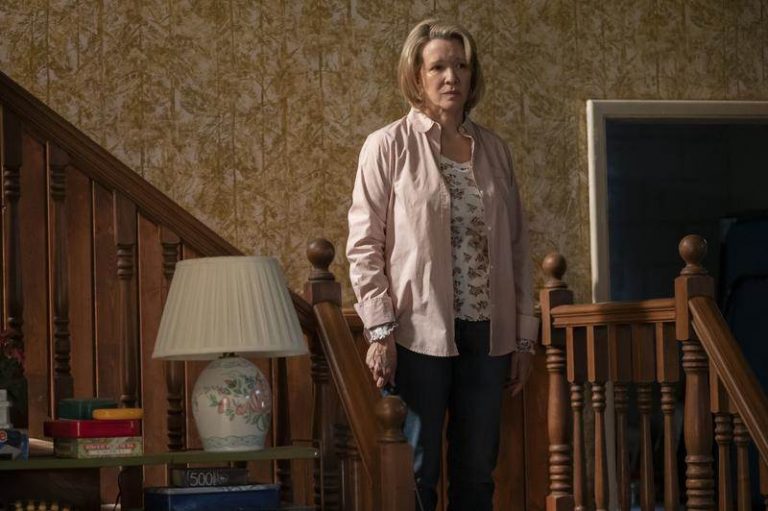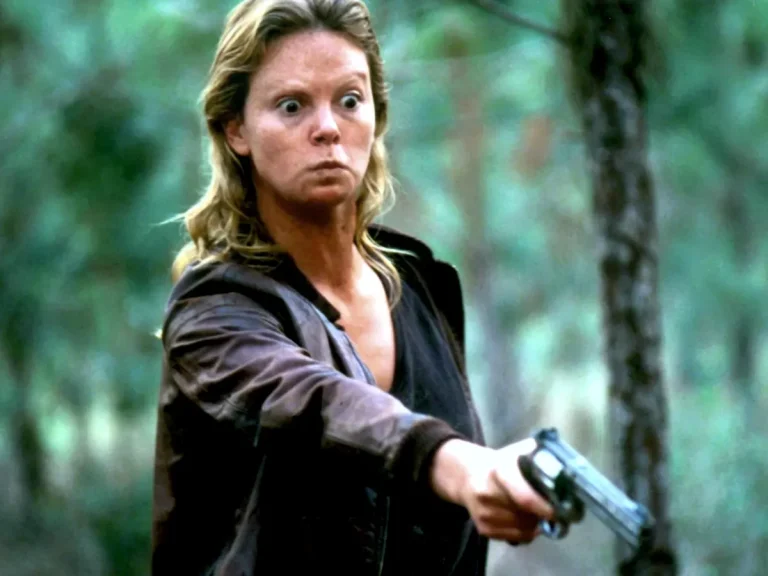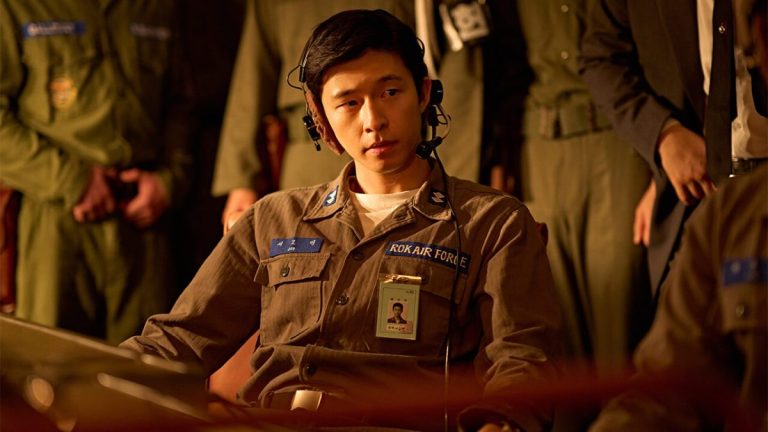Every psychological thriller relies on the execution of both the build-up and the eventual twist. William Oldroyd’s “Eileen,” based on the 2015 Ottessa Moshfegh novel of the same name, unfortunately only manages to succeed in the first of these two aspects. As compelling as the slow build-up is, the journey we go on arrives at a flat conclusion that will leave many unsatisfied. Focusing on the eponymous Eileen (Thomasin McKenzie), the film follows her slow transformation from a sexually and mentally unfulfilled secretary at a New England correctional institution to something far darker as she becomes romantically involved with Rebecca (Anne Hathway), the new prison psychiatrist. The pair’s relationship develops thoughtfully and believably, aided by two excellent contrasting performances. McKenzie has a detached yet endearing quality, whilst Hathaway breathes boldness and charisma into her character despite how little we know about her motivations and way of functioning as a person.
Neither character is strongly written and both feel a little hollow, with the energy going stale whenever the focus isn’t on their interactions. The chemistry between them allows the film’s first two-thirds to remain engaging. But the unfortunate lack of characterization – surprising, given the film’s measured and methodical pace – significantly hinders the supposed emotional climax of the final act. As hard as McKenzie and Hathway try to inject some life into the film despite the poor material they’re given, it is impossible for us to become emotionally invested in the decisions made and the state of their relationship by the conclusion. Strong characterization is integral to the success of a film like “Eileen.”
Everything about the characterization, which is deployed sparingly and only ever as a plot function, feels passive and unmotivated. The same is true regarding the film’s central mystery, which revolves around an inmate, Lee Polk (Sam Nivola), stabbing his father to death and the involvement of his mother (Marin Ireland) in the whole affair. The lack of urgency to solve the mystery hampers the film. You never feel the stakes of this particular situation, and the final act’s twists end up feeling somewhat disjointed from the rest of the proceedings. The questions surrounding Polk never reinforce or build Eileen and Rebecca’s relationship in any meaningful way.

They develop separately from one another and with little prioritization by the screenplay from Moshfegh and co-writer Luke Goebel. Consequently, the film arrives at a collision between two disconnected plot threads, neither paying off the careful build-up that preceded them. Again, the mystery presents itself as nothing more than a series of narrative beats. There is nothing beneath the surface to engage with in any meaningful capacity, and when the twist does come, it is incredibly rushed and unsatisfying. Ari Wegner’s cinematography is solid, but there is a distinct lack of motivation or purpose behind the shot composition and the film’s aesthetic in general.
Though it passes for the story’s 1960s setting, the production design never feels fully realized and lacks a proper sense of time and place. There were interesting ideas the film could have touched upon regarding queer relationships and women’s social roles during the period, but the film never does anything with these possibilities. It could have easily been set anywhere else at any time, and the story would remain unchanged. The same goes for the editing and scoring. Both aspects are serviceable yet lack anything fresh to energize the film.
Every technical element feels functional rather than expressive of any kind of tone or emotion that could have supported the performances and concealed the rigid dialogue. Instead, the performances rise above everything afforded to them and serve as high points in an otherwise bland film. At its core, “Eileen” has a problem with identity. It’s hard to pinpoint what the film wanted to do or be, as there are very few thematic layers to explore. Not every film has to be analyzed for a deeper meaning, but the film fails to achieve even its relatively low ambitions.
It fails as a romance due to a lack of characterization, as a mystery due to a lack of urgency and investment from the characters, and as a film, doing nothing visually to distinguish itself from the literary source material. If there’s any reason to go and see “Eileen,” it’s the performance. But the film around them feels tired and passive – an unmotivated string of plot beats and unengaging dialogue hurriedly wrapped in a disappointing conclusion. A disparate set of well-established ideas peters out into a poorly executed, all-around underwhelming mess.






![Mahaan [2022] ‘Prime Video’ Review – Calling It ‘Ridiculous’ is an Understatement](https://79468c92.delivery.rocketcdn.me/wp-content/uploads/2022/02/Mahaan-2022-768x432.jpg)
